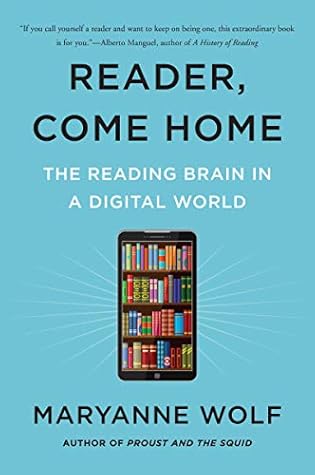More on this book
Community
Kindle Notes & Highlights
Read between
August 17 - October 13, 2019
It is a formula for unwitting ignorance, fear and misunderstanding, that can lead to the belligerent forms of intolerance that are the opposite of America’s original goals for its citizens of many cultures.
Whether writing about humanism’s decline or fear’s capacity to diminish the very values its proponents purport to defend, she conceptualizes the power of books to help us understand the perspective of others as an antidote to the fears and prejudices many people harbor, often unknowingly.
In this sense, when we read fiction, the brain actively simulates the consciousness of another person, including those whom we would never otherwise even imagine knowing.
It is a chilling reminder of how important the life of reading is for human beings if we are to form an ever more realized democratic society for everyone.
There is also a Matthew-Emerson Effect for background knowledge: those who have read widely and well will have many resources to apply to what they read; those who do not will have less to bring, which, in turn, gives them less basis for inference, deduction, and analogical thought and makes them ripe for falling prey to unadjudicated information, whether fake news or complete fabrications. Our young will not know what they do not know.
That said, in a culture that rewards immediacy, ease, and efficiency, the demanding time and effort involved in developing all the aspects of critical thought make it an increasingly embattled entity. Most of us think we are exercising critical thinking, but if we are honest with ourselves, we realize that we are doing so less than we imagine. We believe we will allocate time to it “later,” that invisible wastebasket of lost intentions.
Intellectual rudderlessness and adherence to a way of thought that allows no questions are threats to critical thinking in us all.
From the minute we awaken to the alarm on one digital device, through attention-switching checks in fifteen-minute-or-less intervals on multiple other devices throughout the day, to the last minutes before we sleep when we perform our final, “virtuous” sweep of email to prepare for the next day, we inhabit a world of distraction.14
for many of our young, information has become “a distraction, a diversion, a form of entertainment,20 rather than a tool of empowerment, rather than the means of emancipation.”
Sometimes we outsource our intelligence to the information outlets that offer the fastest, simplest, most digestible distillations of information we no longer want to think about ourselves.
in a digital culture we should not be worrying so much about whether the computer will become like us, but whether we will become like it.
the internal one has to be sufficiently formed before automatic reliance on the external ones takes over. Only in this developmental sequence do I trust that they will know when they do not know.
“Honestly, people are definitely dumber. They just keep passing stuff around. Nobody fact-checks anything anymore.” Separating truth from fiction takes time, information literacy, and an open mind, all of which seem in short supply in a distracted, polarized culture. We love to share instantly—and that makes us easy to manipulate. There
Every medium has its strengths and weaknesses; every medium develops some cognitive skills at the expense of others. Although . . . the Internet may develop impressive visual intelligence, the cost seems to be deep processing: mindful knowledge acquisition, inductive analysis, critical thinking, imagination, and reflection. —Patricia Greenfield2


